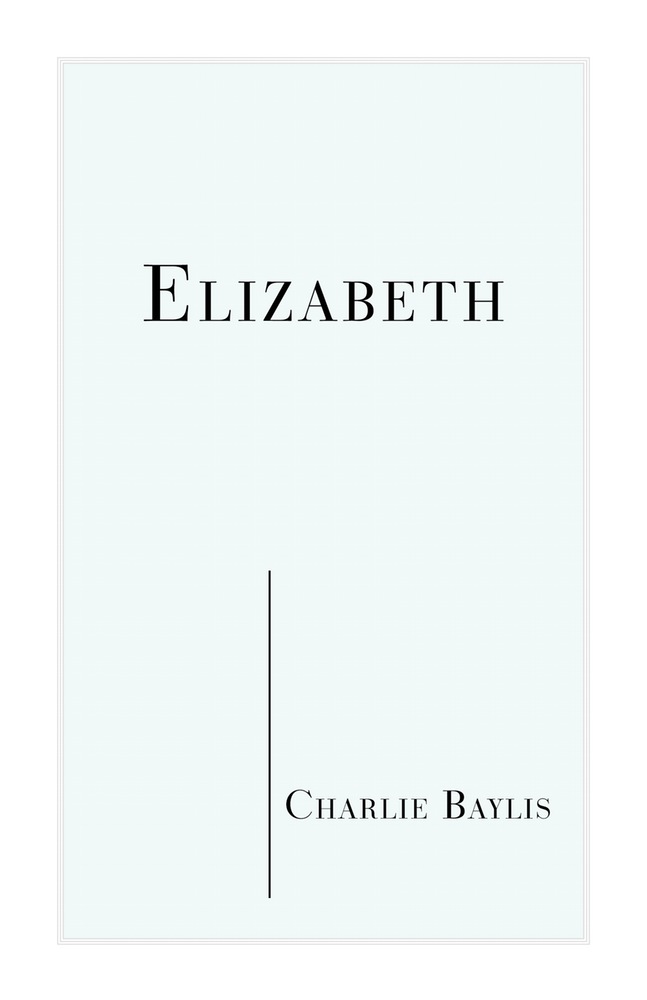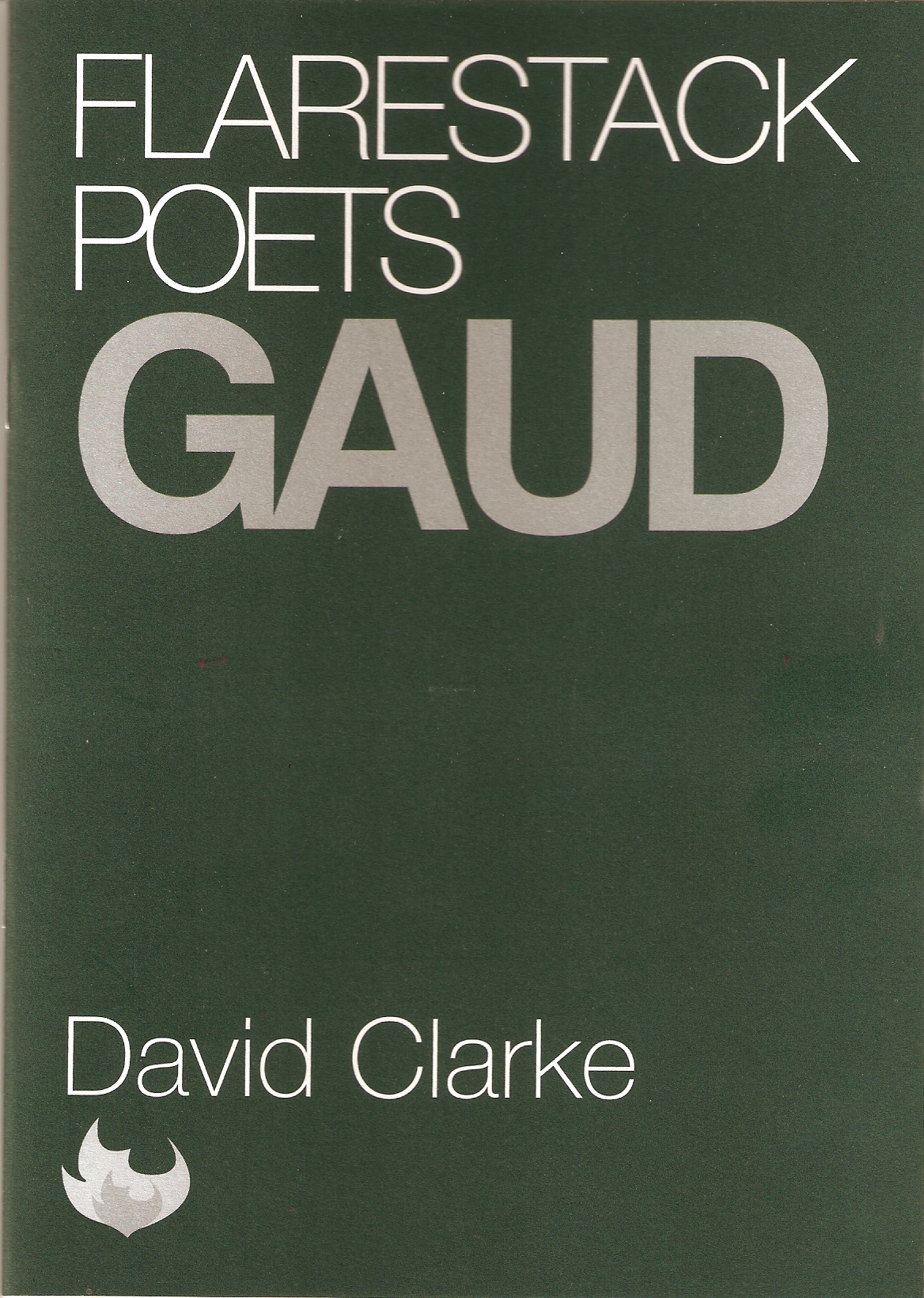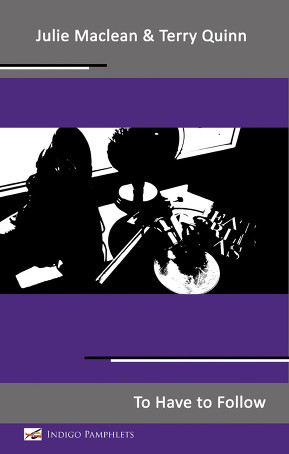Elizabeth by Charlie Baylis
– Reviewed by David Clarke –
Charlie Baylis’ first pamphlet collection, Elizabeth, is an intriguing confection. I should perhaps say that I volunteered to review this publication partly because I had witnessed a minor kerfuffle on social media about a review which Baylis had written of collections published by Nine Arches Press (my own publisher, incidentally). However, my motivation was not to score points off another reviewer in defence of a couple of books I have enjoyed, but to find out how a poet would write who took such a sweepingly dismissive stance on his contemporaries. Was he writing cheques that his own poetry couldn’t cash?
Having read this pamphlet, I can say that Baylis’ work is interesting and entertaining. However, I am not yet convinced that it has achieved the importance which he appears to demand from others. Whether consciously or not, Baylis writes in the postmodern mode of pastiche. It has often been argued that postmodernists come in two varieties: those who parody and those who pastiche. In other words, there are postmodern writers who reproduce the styles of the past with subversive and critical intent, and those who reproduce those styles with a sense of ironic distance, but not in order to make those styles appear ridiculous.
This kind of ironic citation is rife in Baylis’ work. Even the leitmotif of the pamphlet, the longing for an absent female muse (as in the title sequence) is more of an off-the-rack poetic conceit than it is framed as the expression of genuine subjective emotion. In terms of language, Baylis’ writing is often decorous and lush, over-burdened with slightly gaudy imagery:
In San Francisco, I will imbibe an unhealthy lullaby wearing a mask of gasoline. I will lie to you, sweetly, splendidly: o the emerald cities, of the vaults of elves, of the viridian springs, o the golden years.
In San Francisco, I will blow a bubble into your bubble bath, aquamarine and silk, the verve of Venetian velvet, the softness and cruelty of your aspic skin stroking my aspic skin.
There are elements of this deliberately ‘poetic’ language that echo Pound, or (perhaps more strongly) Edith Sitwell, modernists who attempted to salvage some new potential from such richly sonorous, mannered and often obscurely formulated writing, yet here the poems seem characterised less by an urge to renew and more by a kind of ironic nostalgia. Take ‘Midnight on the Spanish Steps’, for example, which uses the final two lines of Keats’ ‘Bright Star’ as its epigraph. The use of those lines, which to contemporary ears can seem a little purple, is both a cue for the style of the poem itself and an ironic point of reference: the poem seems to be saying ‘wouldn’t it be wonderful to write unselfconsciously like Keats, to revel in those high sentiments and that poetic register of language – but of course, you can’t really do that anymore.’ So, for example, the lyric subject ponders the rivers running underneath the city as he sits on the Spanish steps:
Recalling rivers that ran through ancient Rome
Do the rivers still run, somewhere under the stone?
Silent where the Tiber scours opal into ooze
The wistful tone, along with the heavy-handed use of alliteration, assonance, rhyme and clichéd imagery (the river as ‘opal’), all undercut the speaker’s position considerably, forcing us to recognise it as faintly ridiculous. Yet, at the same time, it is hard to deny the pleasure which can still be taken in such language – as long, of course, as we acknowledge it ironically as a guilty pleasure. This mood is turned up a notch towards the end of the poem:
Dust trickles down to the murmuring water
And the maharajah holding a red balloon
Feints in the sweetness, admiring the nightingales.
This incongruous figure and his red balloon appear out of nowhere, and the use of outmoded spelling (‘feints’) feels like another arch move, reminding us not to take this at face value, even while inviting us to revel in the poemy-ness of it all.
The title sequence of the pamphlet is named for a fictional Elizabeth, who Baylis has described as an amalgam incorporating references to Elizabeth Grant (creator of Lana del Ray). Here, the verses whip themselves up into a kind of frenzy, in which rich image is piled on rich image, driven more by the poet’s enamoured relationship with his own expressive powers than the woman who is ostensibly the dedicatee of the sequence.
Moon ink under laudanum
death in the 70s – soldier and vomit
empty lesbian regalia, glitter kicksnail varnish – tipping over a bucket of bleach
into the waves of rosé, Brighton beach,
lipstick and sapphires, magnesiumUV rays, six feather skirts, six
greenhouses in the sea-light of gold
the cloud colour dancing, divineApril starburst, separating comets
come let me kiss you: Elizabeth, for Israel
for the white beads on the Gaza snow.
It is hard, on one level, not to take a similar pleasure in these glittering surfaces to that clearly taken by the poet himself. However, the accompanying relentless irony gives the work as a whole a febrile quality, leaving me with a sense of unease. Ultimately, there is no way out of the corner into which the poet has painted himself. He, or at least the voice of the poems, expresses a longing not such much for ‘Elizabeth’ but for a kind of poetic innocence, a pre-modernist romanticism which can only ever be the subject of pastiche in his own work: it can neither be wholeheartedly embraced, nor finally rejected and abandoned. Baylis wants to have his poetic cake and eat it, yet it finally feels like a strain (both for the poet and the reader) to have to dwell in such a state of ironic detachment, while being drawn ever more strongly towards the very thing one is supposed to be being ironic about. Of course, this all makes Baylis’ work very interesting, compelling even, yet it finally feels more like a symptom of a particular cultural condition than the cure which might help him (or us) transcend that condition.






it’s true that I like Edith Sitwell!
thanks for engaging with my writing x
Dear David,
Please could u clarify ur use of the word ‘purple’? My dictionary gives various definitions.
Thanks